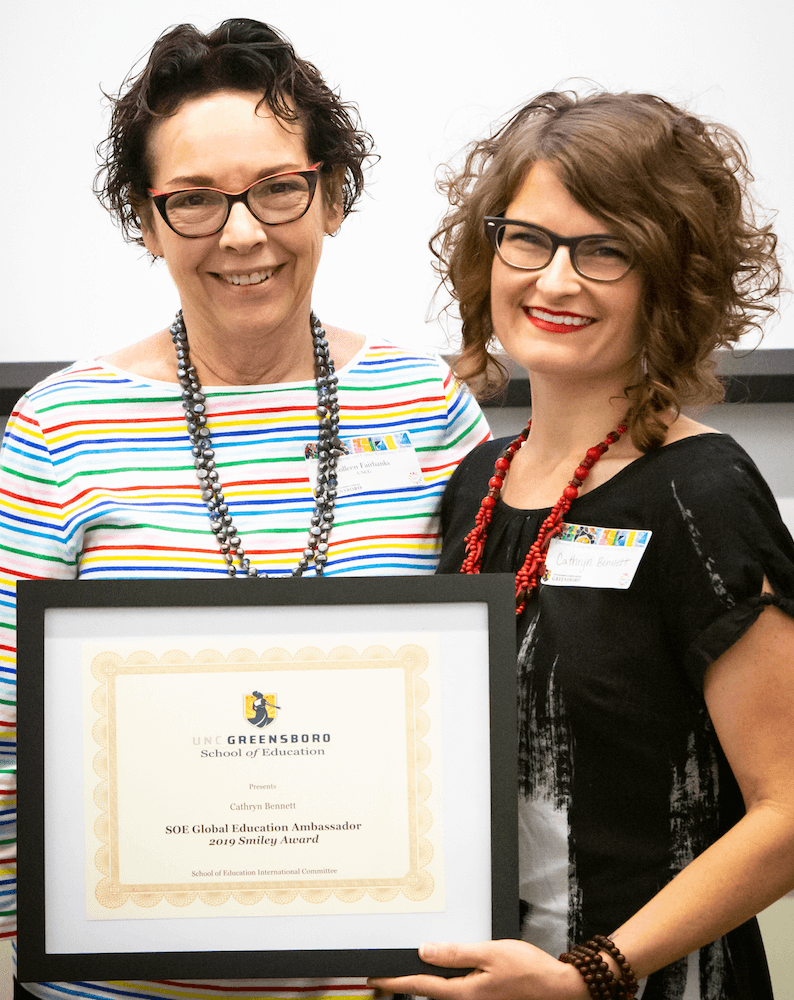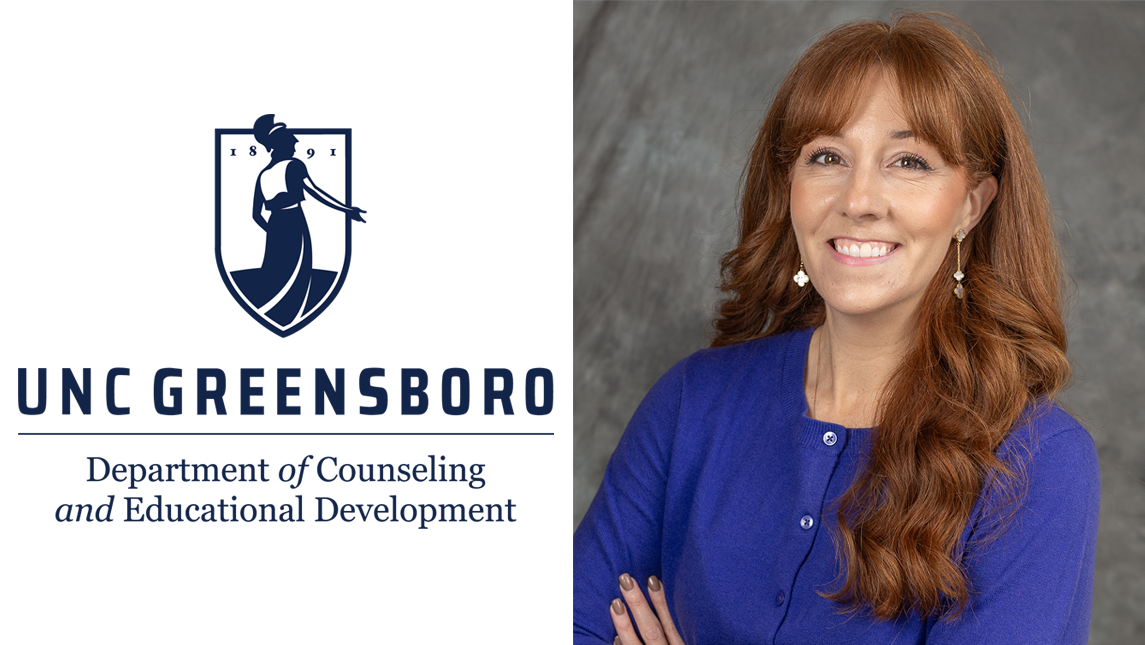
In 2018-2019 academic year, the UNC Greensboro School of Education (SOE) established the Smiley Award to support global educational opportunities for current undergraduate and graduate students in the SOE. Undergraduate or graduate School of Education students who serve as outstanding global education ambassadors through international or local engagement may apply for this award.
This award recognizes students who demonstrate leadership, innovation, and impact in international and local settings based on both previous and proposed engagement activities. The 2019 Smiley Award Winner is Cathryn Bennett, doctoral student in the Department of the Teacher Education and Higher Education (TEHE).
Cathryn brings a global perspective to scholarship in the higher education doctoral program by researching and writing about international students and higher education students in global settings. She plans to attend the intensive course “Posthuman Knowledge(s)” with Prof. dr. Rosi Braidotti at Utrecht University in the Netherlands this summer.
Participation in this intensive course will allow Cathryn to further expand on this knowledge base by cultivating a deeper awareness of the global scholarly conversation around belonging and otherness that pervades education and society. Cathryn anticipates incorporating knowledge developed from this experience in her coursework and scholarship at UNCG with special attention to thinking, writing, and working with students in global contexts beyond the binaries of normative or non-normative, a central question of the intensive course “Posthuman Knowledge(s).”
In addition to the Award Winner, the review committee would also like to recognize Beth Holmes, graduate student from the Department of Library and Information Studies (LIS), as the 2019 Smiley Award Runner-Up. Congratulations, Cathryn and Beth!
Cathryn Bennett’s Smiley Award and “Posthuman Knowledges” Course Reflection:
I returned to Greensboro in mid August 2019 after attending the course “Posthuman Knowledges” taught by Prof. dr. Rosi Braidotti at Utrecht University. Critical posthumanism draws from Deleuze, Guattari, and Spinoza to craft genealogies and cartographies of power that seek to deconstruct anthropocentrism. In an era when environmental degradation, social injustices, and technological advances converge, this field of theoretical and applied knowledge production works toward understanding the world comprised of human and non-human entities with similar respect and consideration. Mapping the power structures in a Foucauldian sense illuminates other means of resisting and moving through inequities to create social, political, and geographic systems. Constructing these assemblages encourage humans to understand their interconnectedness and responsibility for each other, the natural environment, and ethical use and development of technologies.
As an educator fascinated by international and comparative education, critical posthumanism offers encouragement and philosophical understandings that transcend dialectical binaries which so often circumscribe the field, e.g. Global North vs. Global South, educated vs. uneducated, rich vs. poor. The risk in such a dismantling of dialectics is eliding the existing asymmetries of vulnerability lived by students, educators, or institutions not among the privileged and powerful. Here critical posthumanism emphasizes its philosophical basis in Deleuzian depictions of difference that afford an affirmative ethics. This notion calls scholars to acknowledge and work in solidarity with others’ pain and suffering, in other words to move beyond the personal level and develop collective insights on difference.
124 other international scholars and I attended Prof. dr. Rosi Braidotti’s course “Posthuman Knowledges” at Utrecht University in the Netherlands this August. It was an intense week of lectures, readings (4 books and 50 scholarly articles), and arts-based labs in which we cultivated networks across disciplines and borders. I met with scholars in education, pedagogy, migration, and queer studies, interest areas I share, working in Latvia, Greece, Italy, and Mexico, among other locations; discussing the intricacies of these topics through others’ disciplines, experiences, and geopolitical locations situated my work in broader global perspectives. These encounters enabled me to enter new collaboration partnerships for research and writing. The Smiley Award through UNC-Greensboro’s School of Education International Committee was an incredible support to my attendance and ability to engage in this experience. I’m so grateful for this group, my advisor, Dr. Laura Gonzalez, and others who supported and enriched this learning experience!


